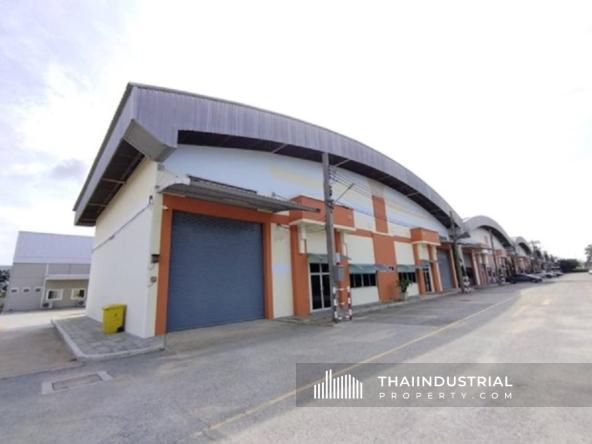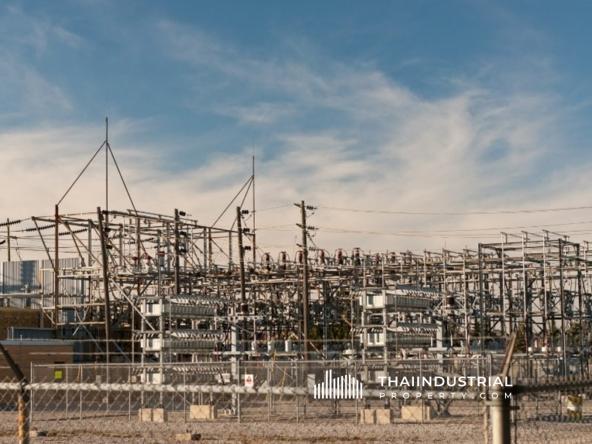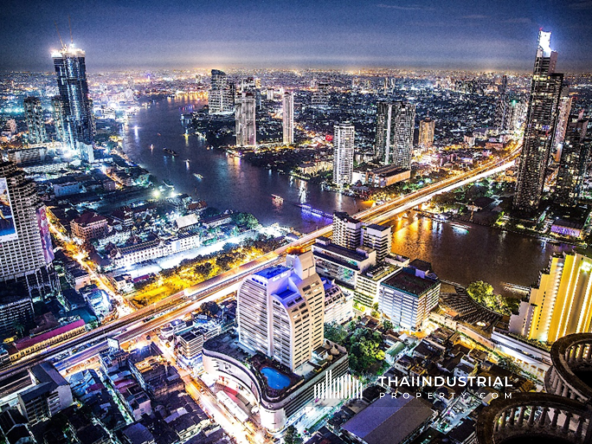If you are an entrepreneur starting to expand your business or establishing a new industrial factory, an essential requirement is obtaining a factory operation permit (Ror.Ngor.4). This document is crucial for operating at a factory level. The amended Factory Act of 2019 has streamlined the permit application process, making it more convenient and faster for entrepreneurs in Thailand. The process for small factories is simpler, catering to new entrepreneurs, while larger factories also benefit from an easier application process. This article compiles 7 key points about Ror.Ngor.4 that everyone should know to prepare adequately.
1. Definition and meaning of “Factory” in Thailand

Let’s start with understanding the definition of a factory in Thailand. A factory refers to a building or place used for producing, assembling, packaging, repairing, modifying, processing, transporting, storing, or destroying as part of the operations at that location. In Thailand, there are specific criteria for classifying a factory. According to the amended Factory Act of 2019, the definition has changed from requiring a factory to have 5 horsepower machinery or 7 workers to having more than 50 horsepower machinery or more than 50 workers. Therefore, businesses with less than the specified machinery horsepower or number of workers under the new Act are not classified as factories in Thailand.
2. What is Permit for Factory Operation (Ror Ngor. 4)?

The factory operation permit (Ror.Ngor.4) is issued by the Department of Industrial Works for Type 2 and Type 3 factories, which have machinery exceeding 75 horsepower and more than 75 workers. Under the new Act, Ror.Ngor.4 does not require renewal and does not expire. Instead, an annual factory fee is paid based on the horsepower used in the factory.
3. Why Apply for a Permit for Factory Operation (Ror Ngor. 4)

If entrepreneurs calculate their operational limits and fall under the definition of a factory according to the Thai Factory Act, they must apply for a factory establishment permit. This is a crucial legal requirement that must be strictly followed. The Ror.Ngor.4 permit ensures that the entrepreneur’s factory operates legally and under control, preventing harm to society, the surrounding community, and the environment according to the procedures and conditions set by the Department of Industrial Works.
4. Understanding the Types of Factories that Require Permits

In 2020, the Thai Department of Industrial Works announced ministerial regulations to specify the types, kinds, and sizes of factories based on machinery horsepower, the number of workers, and factory type. Factories are classified into three categories:
Type 1 Factories: Factory tailored for a specific purpose
These are categorized by their type rather than machinery horsepower or the number of workers, including coconut sugar factories, hatcheries using incubators of any size, electric appliance repair shops, shoe and leather repair shops of any size, watch and jewelry repair shops, car wash facilities, and factories decorating with glass, shell, mirror, gold, or gemstones.
Type 2 Factories: Factories with machinery not exceeding 75 horsepower or workers not exceeding 75 people
Small-scale factories generally fall into this category, having machinery between 50 to 75 horsepower and more than 50 but not more than 75 workers. However, some factories may be classified as Type 3 based on the specific regulations of the Act, regardless of these criteria.
Type 3 Factories: Factories with machinery exceeding 75 horsepower or workers exceeding 75 people
Most industrial factories with machinery over 75 horsepower and more than 75 workers fall into this category, according to the amended Factory Act of 2019. Specific types of factories requiring Ror.Ngor.4, even if they have less than 75 horsepower machinery, include those producing or processing animal and plant oils, alcohol production, wood products, and dyeing and bleaching factories.
If you are unsure about the type and category of your factory, you can find more detailed information on the types, kinds, and sizes of factories by clicking on the Ministerial Regulation on Types, Kinds, and Sizes of Factories. Alternatively, you can contact Thailand Department of Industrial Works at (02)-202-4000 for further information, or click here.
5. Conditions for Applying for a Permit for Factory Operation (Ror Ngor. 4)

Entrepreneurs establishing Type 2 and Type 3 factories will face slightly different conditions for obtaining an establishment permit. For Type 2 factories, there is no need to apply for an Ror.Ngor.4 before starting operations, but they must notify the authorities before beginning their activities. When commencing operations, they must inform the relevant factory officials. In contrast, Type 3 factories must obtain the factory operation permit (Ror.Ngor.4) before starting operations as stipulated by the Factory Act.
6. Documents and Requirements for Applying for a Permit for Factory Operation (Ror Ngor. 4)

To prepare documents for the Ror.Ngor.4 application, entrepreneurs should contact the Department of Industrial Works in their respective district or province where the factory is located. This is to receive consultation and guidance on document preparation and the application process, ensuring smooth processing for both parties. Basic documents include a risk assessment report and various construction documents. At least three sets of document copies should be prepared as following:
- Application form for a factory permit/expansion – Download
- Certificate of corporate registration (for corporate applicants), certified within the last three months
- Copies of the national ID card and house registration or passport of the authorized signatory
- Power of attorney
- Documents proving the right to use the land, such as a copy of the land title deed
- Factory building plans signed and certified for safety by a supervising engineer
- Layout plan showing the machinery installation, certified for safety by an engineer
- Copy of the construction permit
- Detailed production process
- Other documents as specified by the authorities
For more details on the documents required for the factory operation permit (Ror.Ngor.4), click here.
7. Steps for Considering the Factory Operation Permit (Ror.Ngor.4)

After consulting with officials and preparing the necessary documents, entrepreneurs can submit their application for inspection and the permit at the Department of Industrial Works in the province where the factory is located. Additionally, there is good news for those planning to establish a factory in Bangkok: you can apply for the permit online by clicking here. The steps for considering the Ror.Ngor.4 permit are as follows:
- The entrepreneur submits the application along with the required documents.
- Officials review the documents for completeness and accuracy.
- Officials record the submission for permit consideration.
- Officials inspect and evaluate the operations, production process, location, measures to prevent nuisances and impacts, and pollution control, then prepare a summary report of the inspection.
- Officials notify the entrepreneur of the decision. If approved, the Ror.Ngor.4 factory operation permit is issued. If not approved, the entrepreneur has the right to appeal within 30 days.
For more details on the steps for considering factory permits, visit: DIW Procedure
For details on factory operation fees, visit: Operation Fees
For annual fees for Type 2 and Type 3 factories, visit: Annual Fees
In summary, if you’re an entrepreneur operating a Type 3 factory with machinery exceeding 75 horsepower and more than 75 workers, which falls under the definition of a factory according to the amended Factory Act of 2019, you’re required to apply for a factory operation permit (Ror.Ngor.4) as mandated by Thai law. The great news is that the new regulations have significantly simplified the application and document preparation process, making it easier than ever! If you’re feeling unsure about preparing the necessary documents, don’t worry—use this article as your go-to guide for a smooth and successful document preparation journey! Let’s get your factory up and running legally and efficiently!
If you are looking to rent warehouses and factories of various sizes from 300sqm to 30,000sqm in Samut Prakan kindly contact us at: https://www.thaiindustrialproperty.com/contact/




